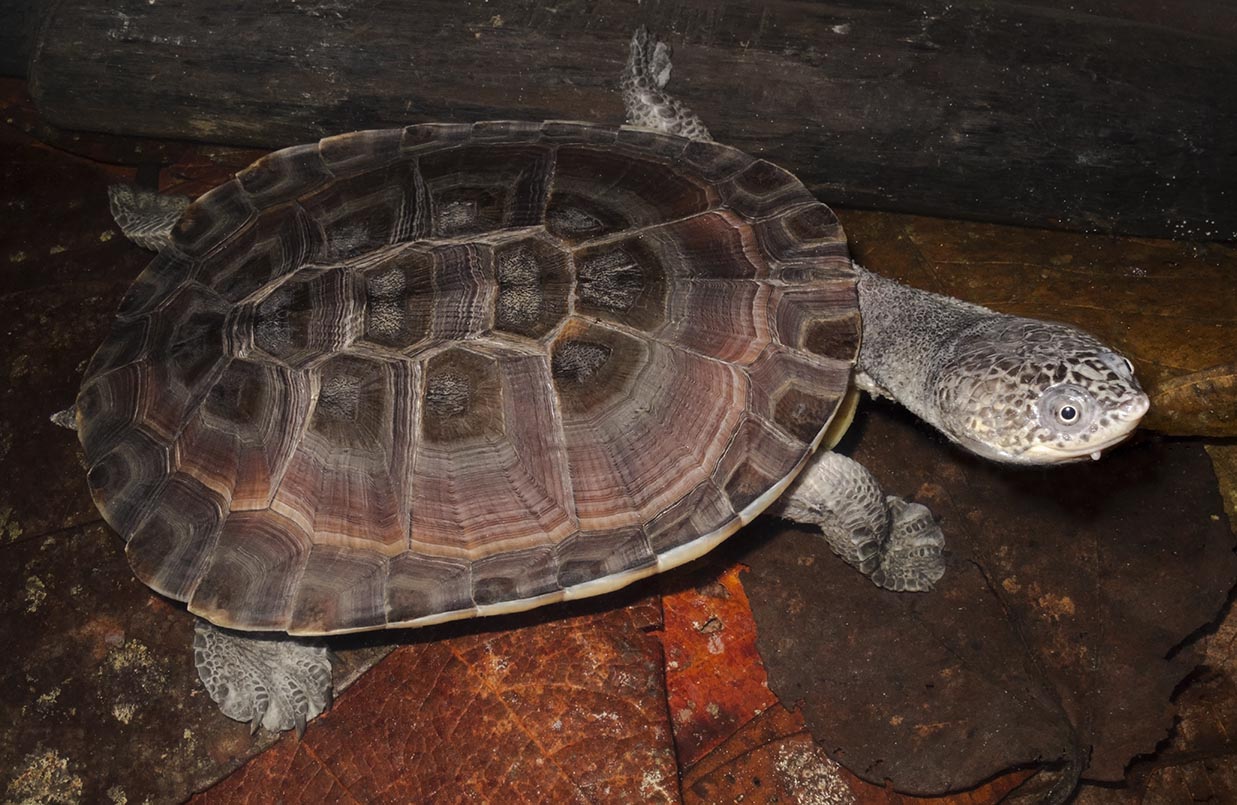Lack of Aggressive Behavior between Neonates of Little Brown Skinks (Scincella lateralis)
Nearly all studies of lizard behavior have been conducted on adults. Therefore, an important part of the lizard life cycle has been overlooked, the neonate stage. Lizards hatch at about the same time, briefly causing high density and increased chances that neonates engage in aggressive encounters. We studied the behavior of neonate Little Brown Skinks (Scincella lateralis) by staging a series of dyadic encounters between pairs of neonates in the laboratory. Two neonates were confined in an observation chamber on either side of a partition for 48 h. The partition was then removed, a single retreat was placed in the center of the observation chamber, and the behavior of the two neonates was recorded for 60 min. Neonate Little Brown Skinks almost never showed aggressive behaviors, such as biting and chasing, exhibited by adults. Neonates segregated themselves on opposite sides of the observation chamber when active on the surface, but frequently simultaneously occupied the retreat, something that almost never happens in adults. Limited data on species of skinks that form stable aggregations suggest that retreat sharing by neonates or juveniles may be common in members of the Scincidae.Abstract

Mean number of seconds dominant and subordinate neonate Little Brown Skinks (Scincella lateralis) spent on the home side of the observation chamber, the opposite side of the observation chamber, and under the single retreat in the center of the observation chamber. Vertical lines represents ±1 SE. The results of paired t-tests for each category are shown; df = 11 for all tests. There were no significant differences between dominant and subordinate Little Brown Skink neonates for any category.
Contributor Notes
